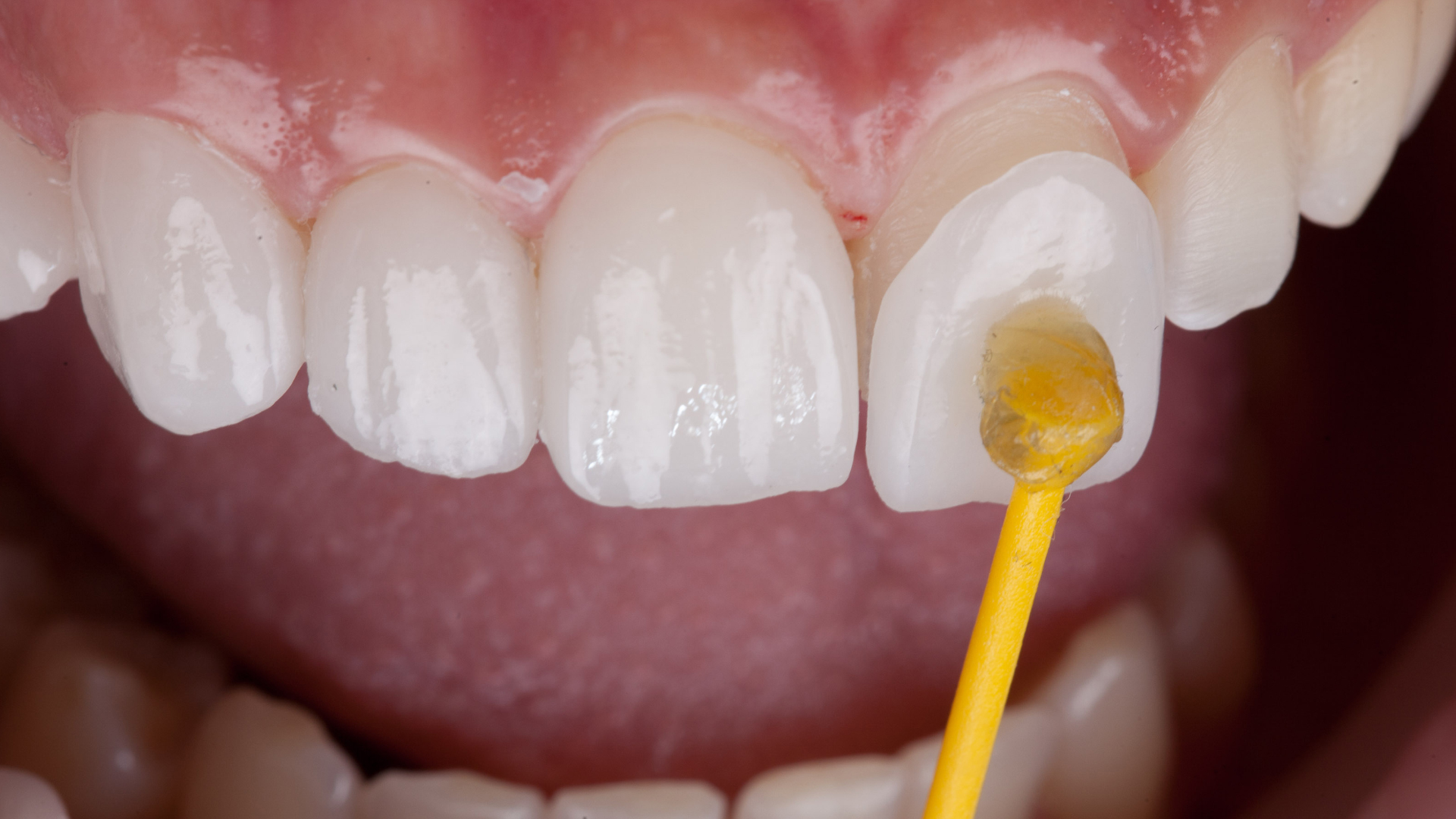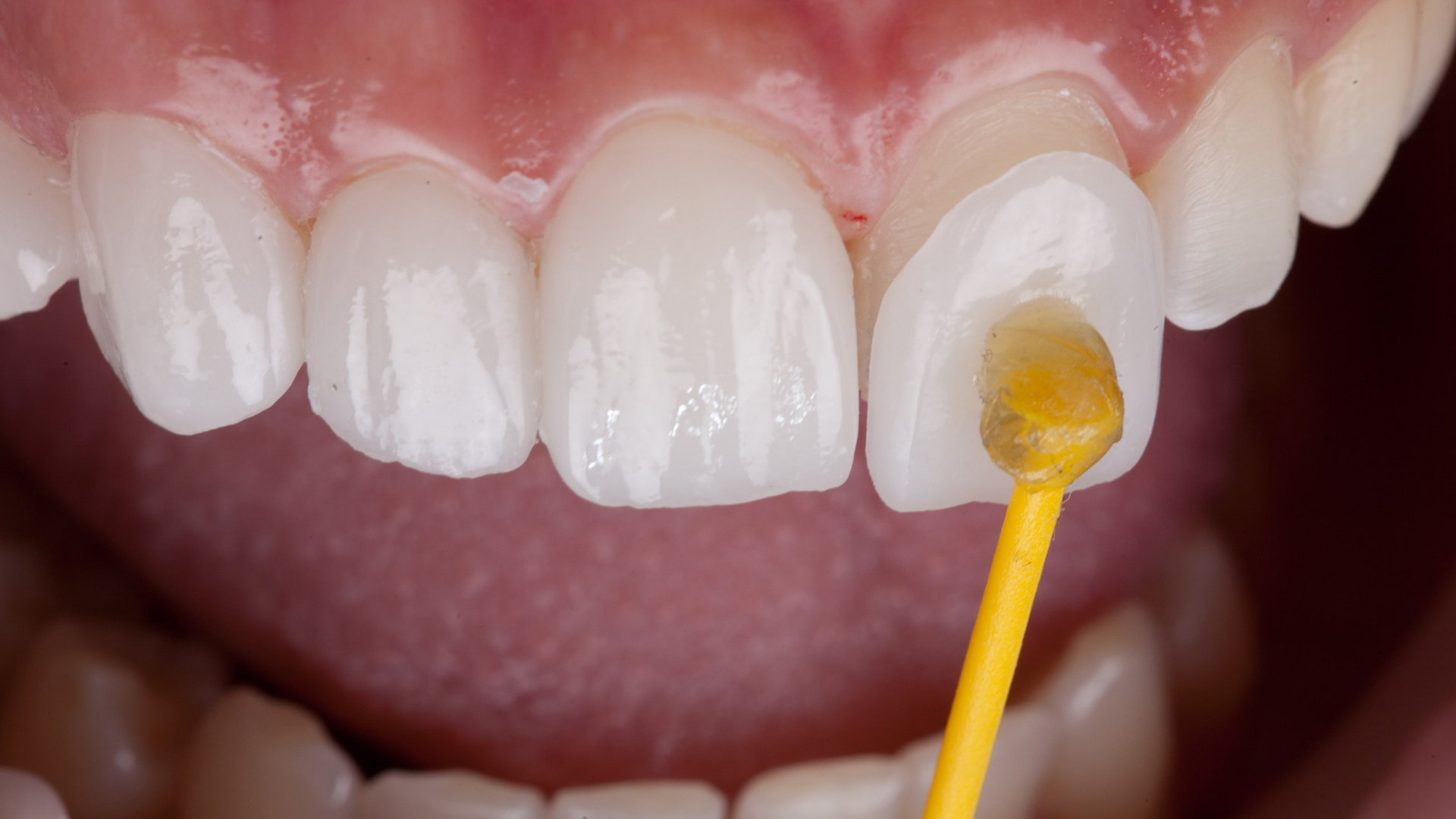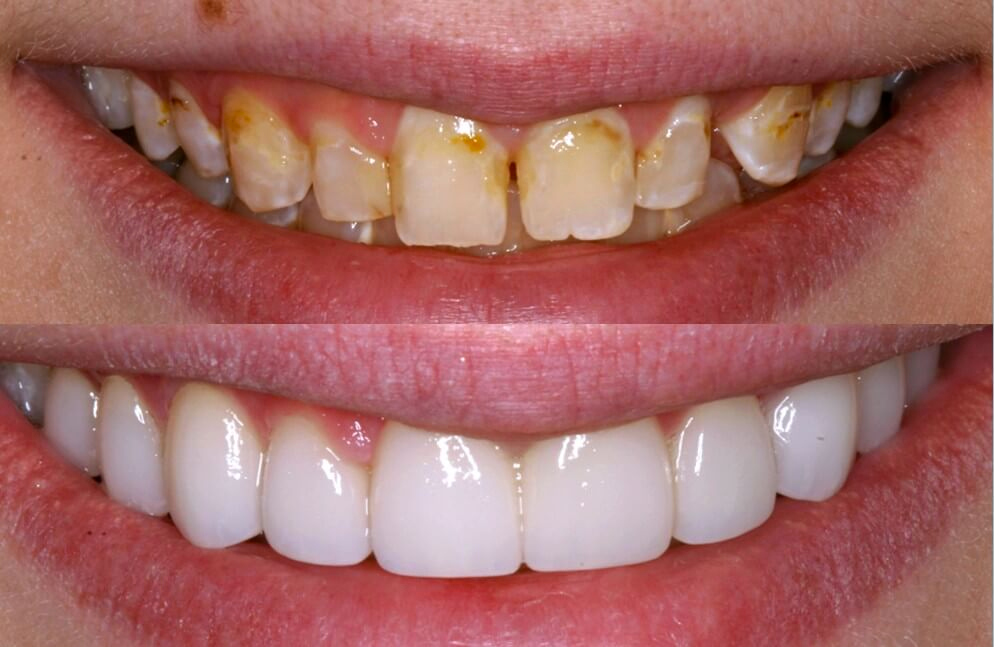
Teeth are one of the hardest parts of the human body but even they can break or suffer damage. Sometimes they may be out of alignment. Such problems can impair dental function as well as hurt your appearance. Fortunately, modern dentistry offers dental veneers treatment to correct such imperfections. If you want to improve the look of your teeth, dental veneers can help.
‘Dental veneers’ are thin shells or teeth covers. They are attached to the surface of your existing teeth to correct cosmetic dental imperfections. In the process, you also get a smile makeover and instant self-confidence boost. They are often custom made and attached to the surface of the existing tooth. The result is more than the correction of dental imperfection. People who get dental veneers often experience a smile makeover and an instant confidence boost.
This article answers questions like what is a veneer, how do veneers work, what are the different types, what are veneers made of, how are veneers done, and what is veneer aftercare.
What Are Veneers?
Dental veneers are like covers for the teeth. They may be made with porcelain, ceramic or resin. They can fix a number of cosmetic dental imperfections like the ones listed below.
- Chipped or broken teeth: Veneers look and act like natural teeth. So, they can be used to cover such teeth, allowing you to chew and speak properly.
- Gaps between teeth: Veneers help to fill any extra spaces between the teeth, resulting in a more pleasing appearance and confident smile.
- Stained or discoloured teeth: If you have tried whitening treatments that haven’t produced desired results, veneers can help by covering the stained teeth.
- Uneven or misaligned teeth: Conventionally, braces have been used to correct misaligned teeth. But braces can be painful and take a long time to work. Veneers can quickly improve your appearance without the use of braces.
In other words, dental veneers can help you achieve beautiful teeth and smile in a short time.

Types of Veneers
If you are considering dental veneers, several types are available today. Discuss your needs and goals with your dentist to decide which type would be best for you and your teeth. Here’s a quick look at the benefits each option offers.
- ·Porcelain veneers
Porcelain veneers are known to be the most durable veneers. They have been shown to last 10 years or longer with a low failure rate. Porcelain mimics natural teeth by reflecting light. This makes them the most natural looking veneers. These veneers are stain-resistant too.
- Ceramic veneers
Ceramic veneers need less prep time than porcelain veneers because they require less enamel removal. These veneers have a good success rate and longevity just like porcelain veneers. Another advantage of ceramic veneers is the option to choose the colour for your teeth. You can either choose pearly whites or a shade closer to your existing teeth.
- Resin composite veneers
Resin composite veneers are known for their cost-effectiveness, low prep time, and less enamel removal requirement. Your dentist may be able to apply resin veneers in a single visit. They are easier to repair in case of damage.

Who can get Veneers?
Dental veneers are a good long-term option to get that picture-perfect smile, but they are not for everyone. Veneers are suitable for you and your teeth if you fulfill these criteria.
- ·Good oral health: If you have minor dental defects but overall healthy teeth and gums, you are an ideal candidate. Poor oral health may disqualify you for this treatment.
- ·Absence of major dental conditions: Veneers can fix cosmetic dental problems. But if you suffer from major dental conditions, like gum disease, you shouldn’t consider veneers till that issue is treated.
- ·Consultation with a professional: Consult a skilled dentist who can help you decide if veneers are the right cosmetic dental treatment for you and the type of veneers.
The Veneer Process
If you are thinking of getting dental veneers, you should understand the veneering procedure. The veneer process typically involves these steps.
- Preparing the teeth: Preparation for dental veneers involves removal of enamel from the surface of your teeth. This is needed to make space for the veneers. The extent of enamel removal will depend upon the type of veneers you have selected.
- Making the mold: A custom mold is made with the help of a 3D digital scan of your natural teeth. This mold will make sure your dental veneers are a snug fit.
- Matching the colour: The veneers are shade-matched to the colour of your natural teeth or the shade you prefer.
- Bonding the veneer: The veneer is permanently attached to your tooth using a special long-lasting adhesive. The veneers then may be cured with a light for hardening.

Veneers Aftercare
If you are planning to get dental veneers, you must take good care of your veneers. To make sure they remain in optimal condition, proper aftercare includes:
- Oral Hygiene: Brush and floss your teeth regularly to maintain good oral health.
- Protect your teeth: Avoid biting on hard foods. Your teeth are not tools so don’t use them as such.
- Routine Dental Visits: Visit your dentist regularly for routine check-ups. Your dentist will monitor and treat any issues to keep your teeth, gums and veneers in perfect shape.
Veneers at North York Smile Centre
Whether you suffer from damage, discolouration or misalignment of your teeth, veneers can answer your prayers. An understanding of the veneering procedure can help you make an informed decision about your treatment.
North York Smile Centre dentists provide a number of cosmetic dental treatments, including the veneer process. They use the latest, proven techniques, and high-quality materials to help you achieve a natural look and a smile makeover. Schedule an appointment today for a free consultation and take the first step towards transforming your smile. The most beautiful teeth shape is now within your reach with the right veneers and proper aftercare.
Resources:
-
https://www.sciencedirect.com/science/article/abs/pii/S0109564122000860
-
https://bmcoralhealth.biomedcentral.com/articles/10.1186/s12903-023-02949-5


